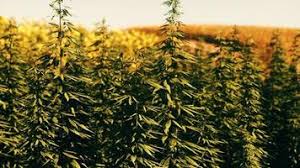
Discovering Cannabis in Bălți: Legal Landscape and Social Perceptions
Like many cities worldwide, Bălți is not immune to the growing global conversation surrounding cannabis use and legalization. This article will explore the legal status of cannabis in Bălți, the underground cannabis culture in the city, and how the public perceives marijuana use on discover weed in Balti.
Cannabis Laws in Moldova: A Strict Stance
The government maintains a zero-tolerance approach to drug use, and this extends to all substances classified as illegal, including cannabis on discover weed in Balti.
- Possession and Trafficking Penalties: Under Moldovan law, the possession of even small amounts of cannabis is a criminal offense. Anyone caught with marijuana faces legal consequences, ranging from fines to imprisonment. The severity of the penalty depends on the amount of cannabis involved, with larger quantities leading to more severe punishments. Cannabis trafficking, which involves the distribution or sale of marijuana, is considered a serious crime in Moldova. Traffickers face long prison sentences if caught, and law enforcement is highly active in policing drug-related offenses on discover weed in Balti.
- Medical Cannabis: Although many countries worldwide have moved toward allowing cannabis for medical use, Moldova has not yet made significant strides in this area.
- Enforcement in Bălți: The authorities’ vigilance in enforcing these laws makes it risky for residents to engage in any cannabis-related activities in public or private spaces on discover weed in Balti.
The Underground Cannabis Culture in Bălți
While cannabis use is not widespread, those who wish to use it in the city often turn to illegal channels to obtain it on discover weed in Balti.
- Where Cannabis is Obtained: People who want to buy cannabis usually rely on the black market. This often involves word-of-mouth networks or personal connections to find local dealers. Transactions typically occur in private settings to avoid attracting the attention of law enforcement.
- Who Uses Cannabis in Bălți?: Cannabis use in Bălți is primarily associated with younger people, including university students and young professionals.
- The Risks of Black Market Cannabis: Marijuana bought from illegal dealers may be mixed with harmful chemicals, pesticides, or other substances, making it unsafe for consumption. This lack of quality control is a significant concern for those who choose to use marijuana in an underground market.
Social Perception of Cannabis in Bălți
Social attitudes towards marijuana use are heavily influenced by Moldova’s traditional values, Soviet-era drug policies, and the general legal landscape.
- Conservative Views: Moldova has traditionally been a conservative country, particularly regarding issues related to drug use. Older generations in Bălți, who grew up under Soviet influence, often view cannabis as a dangerous drug. As a result, cannabis users in Bălți risk facing judgment from their families, peers, and the broader community.
- Fear of Legal Consequences and Social Stigma: This deters many individuals from discussing or advocating for cannabis use publicly. In addition to legal concerns, there is the social stigma that comes with using cannabis in a conservative society.
Alternatives to on discover weed in Balti
For those in Bălți seeking ways to relax, reduce stress, or improve their well-being without using cannabis, there are numerous healthy and legal alternatives.
- Outdoor Activities: Spending time in nature is known to reduce stress and improve mental health.
- Physical Exercise: Regular exercise is one of the most effective ways to manage stress, improve mood, and enhance physical well-being. Exercise also releases endorphins, the body’s natural mood boosters, which make it an excellent alternative to cannabis.
Conclusion on discover weed in Balti
While cannabis remains illegal in Bălți, the city, like many others, has an underground culture of cannabis use. The legal penalties for possession and trafficking are severe, and law enforcement in Bălți is vigilant in policing drug use. Despite the growing global conversation about cannabis legalization, Moldova’s conservative stance on drug use remains firmly in place. For those seeking alternatives, outdoor activities, physical exercise, and cultural engagement provide healthy, legal ways to relax and improve well-being.
Message Greenleafemporium1@gmail.com “There weed is so well-cured that it practically glows, and when I lit up, the smoke was smooth and flavorful without any harshness, which is exactly what I look for.” Highly recommended local plug his telegram / https://t.me/Greenleafemporium1
“Wow’ they have earned my trust by being consistently reliable, providing top-tier products every time and delivering them on time with no fuss.
There service was amazing; they were quick to respond to my questions and made sure everything went smoothly, making the entire process a pleasure from start to finish thank you.
You’ve made me feel like a valued customer every time I’ve ordered, with your quick responses and willingness to help out, I won’t be going anywhere else.
“I don’t think I’ve ever gotten a more potent batch, each hit is smooth and flavorful, and the effects are just what I need to unwind and relax ‘ Thank you guyz.
I just got my order, and I have to say, the quality of the buds is absolutely top-notch, with a pungent aroma that immediately let me know I was in for a great experience.